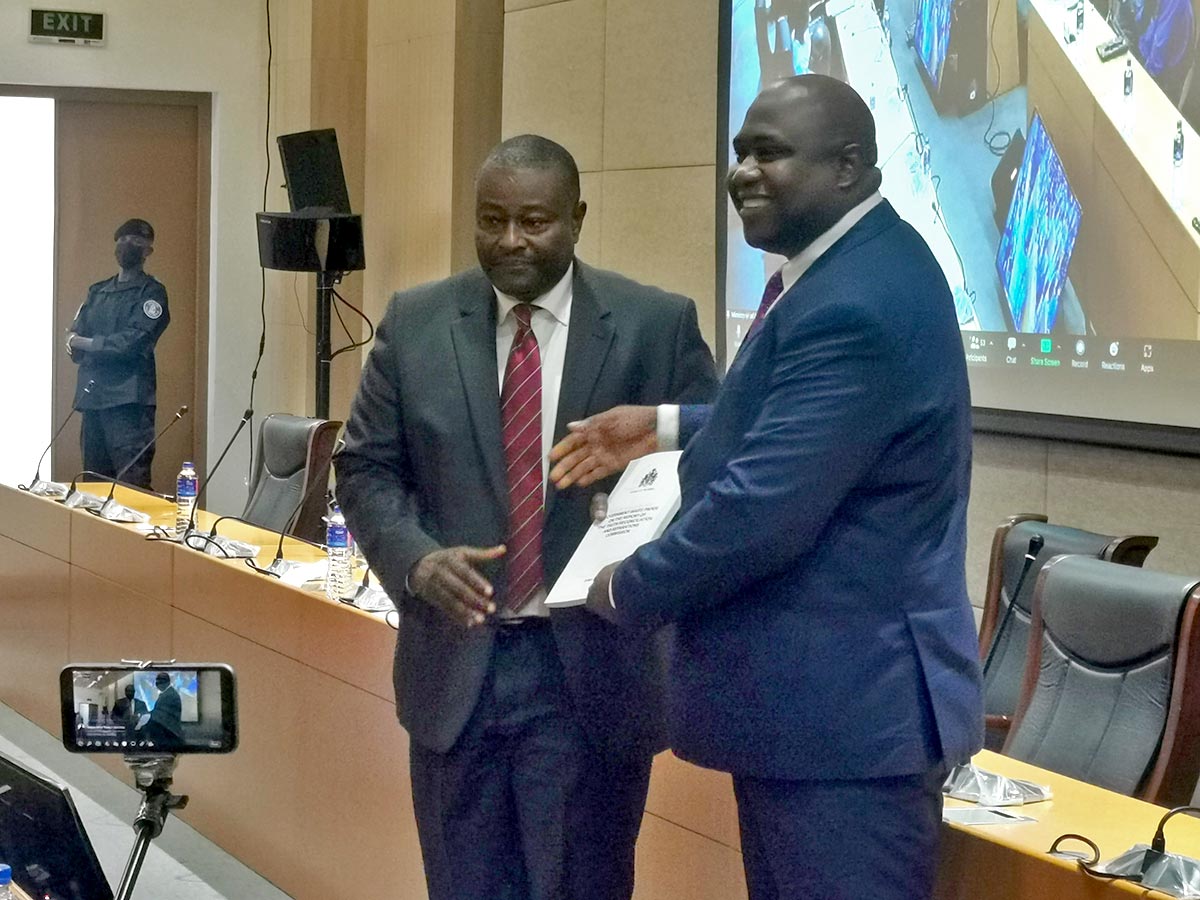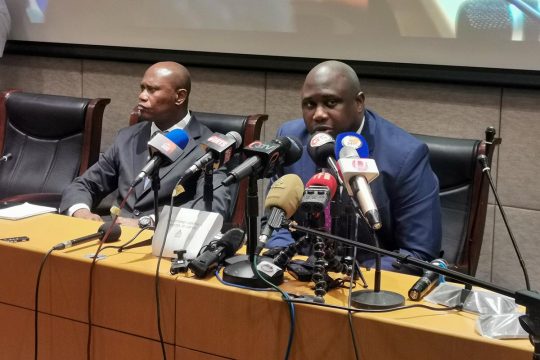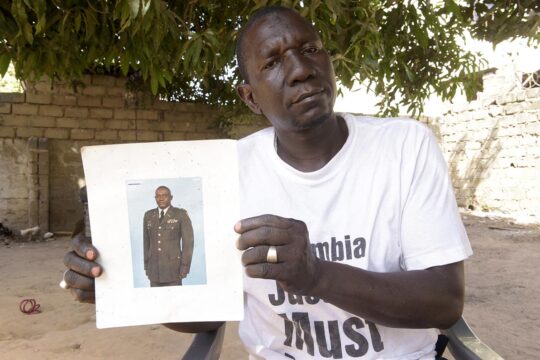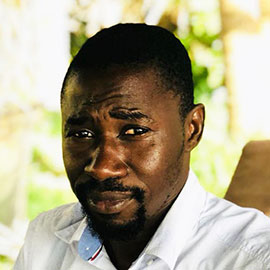In May this year, the Gambia government held a press conference committing itself to implementation of the Truth, Reconciliation and Reparation Commission (TRRC)’s recommendations. The launch of a White Paper was to be followed by a prosecution strategy, establishment of a committee to complete financial redress to victims, and banning individuals responsible for rights violations from holding public office – as requested by the Commission in several recommendations.
Some should get a life ban while others between 5 and 10 years. But as of now, none of them have been fired. Officials who should have been banned from holding public office continue to work or are sent on administrative leave.
Justice Minister: “They are not coming to work again”
The Gambia is coming from a history where the current administration instituted inquiries and reneged on implementing its recommendations. Instead of being dismissed, several high-profile individuals singled out by the Commission were sent on administrative leave.
The director of operations of the National Drug Law Enforcement Agency, Ebrima Jim Drammeh, was sent on leave on July 13. The head of the anti-crime unit of the Gambia police, Gorgi Mboob, was also sent on administrative leave on August 19. Onetime police chief Ensa Badgie was sent on leave too. Badgie was found to have played an active role in the cover-up of the killing of West African migrants in the Gambia in 2005 and to have helped ex-president Yahya Jammeh carry out a witch hunt that lead to several deaths.
“To some of them, the (TRRC) Report says that you don’t hold office anymore or get banned for five years. Those should be banned,” said Emmanuel Joof, the chair of the National Human Rights Commission (NHRC) of The Gambia that is tasked with monitoring the implementation of the TRRC recommendations and reporting to the country’s National Assembly.
Contacted by Justice Info, the country’s Justice Minister Dawda Jallow said the officials were sent on administrative leave to give the government time to determine the appropriate actions to be taken. “We will later review their contracts to determine if they will go on retirement, dismissal or termination. A professional decision has to be made on that,” said Jallow. “They are not coming to work again. We only have to determine the terms as to how it will happen.” Jallow could not place a timeline for following measures to be taken.

“Selective implementation of TRRC’s recommendations”
A leading rights activist, Madi Jobarteh, thinks the Ministry’s actions were just another excuse not to implement the recommendations of the Commission. The Ministry, he said, could have simply written to the personnel management office to implement the ban without any delay.
“This is a clear attempt to renege on their own commitments as manifested in the creation of the TRRC and further deviation from the comments made by the Justice Minister at the launching of the White Paper. Evidently, the aim is to abandon the TRRC recommendations, or selectively implement,” said Jobarteh.
Further inquiry or re-assessment?
In its report, the TRRC also made recommendations against recent Interior Minister and police chief Yankuba Sonko, ordering him to be banned for 10 years. Sonko allegedly played a significant role in the cover-up of the killings of 50 West African migrants. Sonko was Jammeh’s last police chief and was later appointed as Interior Minister under the new administration. He was removed shortly before the launch of the White Paper.
But the government recently claimed some new evidence has emerged that could exonerate Sonko, and said it would establish a committee to look into it. The national rights watchdog NHRC declined to sit on the committee. “It is not the job of the institutions to do another inquest. What was the point of having an inquiry?” said Joof.
Sonko’s case is not unique. Another police officer, Almameh James Manga, should be subject, according to the TRRC, to disciplinary measures for unlawfully detaining a child and her mother. But the police said such a finding was unfair and therefore disregarded it.
“They send some people home, but for some who should face internal disciplinary sanctions we have found that on two occasions their institutions said the findings were unfair,” said Joof.
A former Jungler at the anti-narcotic agency
Lamin Senghore was a trained Jungler – member of a paramilitary hit squad that reportedly operated on the orders of former President Yahya Jammeh – who was allegedly involved in the torture of former Junta vice chairman Sanna Sabally and Interior Minister Saidibu Hydara. Hydara reportedly succumbed to the wounds he sustained during their torture. Senghore was also allegedly involved in the killing of close to a dozen soldiers on November 11, 1994.
In April 2019, following his testimony before the Truth Commission, Senghore – also known as “The Assassin” – was charged for perjury by the Commission. But as of now, the Ministry of Justice has filed no charges against him and the police have withdrawn charges. He was recommended for a 10-year ban from holding public office by the Commission, but Senghore currently works at the anti-narcotic agency office in Banjul. The agency told Justice Info they received no letter suggesting his ban.
Meanwhile, the country’s Defence Ministry has also sent on administrative leave several soldiers: general Alagie Martin, Amadou Njie, Jungler Malick Jatta, Jungler Alieu Jeng, Baboucarr Njie, Lamin Sillah and Jungler Omar Jallow. And so far, the Gambia police force has only confirmed two administrative leaves – Badgie and Mboob. A senior police officer who spoke to us on condition of anonymity confirmed that the rest that were recommended to be banned by the TRRC were “allowed to work”.


![Former police chief Ensa Badgie [here at the start of his testimony before the Gambia Truth Commission in november 2019], was sent on leave while he should have been banned from public office. Badgie was found to have played an active role in the cover-up of the killing of West African migrants in 2005. © Mustapha K. Darboe Ensa Badgie prepares to testify (book in hand) at a Gambia Truth Commission (TRCC) hearing, next to an employee](https://www.justiceinfo.net/wp-content/uploads/Gambia__Ensa-Badgie-truth-commission-TRRC_@Mustapha-K-Darboe-730x487.jpg)





